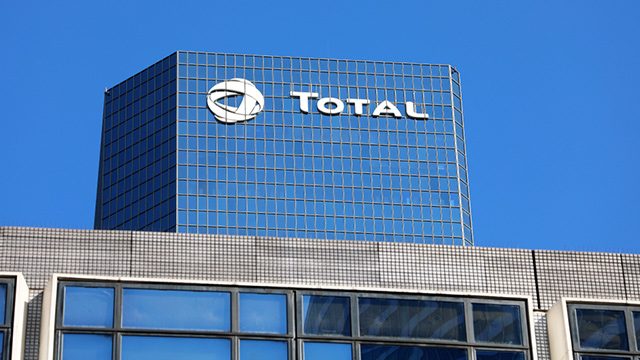SUMMARY
This is AI generated summarization, which may have errors. For context, always refer to the full article.

PARIS, France – French oil major Total said on Monday, March 23, it would slash investment spending by a fifth, cut an additional half billion dollars in costs, and halt share buybacks as it seeks to deal with a plunge in the price of crude because of the coronavirus outbreak.
To deal with the price of oil, which plummeted by more than half to under $30 per barrel, the firm said it had adopted an action plan.
The plan includes cutting capital spending by “more than $3 billion, ie. more than 20%, reducing 2020 net investments to less than $15 billion.”
It announced “$800 million of savings in 2020 on operating costs compared to 2019,” up from $300 million previously announced.
Total also announced it would suspend its share buyback program, a method used by many firms to return funds to shareholders.
It had planned to repurchase $2 billion of its shares in 2020 and announced it bought back $550 million in the first two months.
Officials around the world have imposed confinement measures on their citizens in an attempt to slow the spread of the coronavirus, leading to a slump in demand for oil.
Meanwhile, Russia and Saudi Arabia have launched a price war and stepped up production, adding further downward pressure to prices.
Total’s chief executive Patrick Pouyanne said that global demand for oil was likely to drop by 6 million barrels per day while an additional 3 billion to 4 billion barrels per day were likely to flood the market.
“This explains why the price of oil has collapsed,” Pouyanne said in a video message to Total staff on the company’s website.
He said Total was in a much better position than the last time oil prices collapsed in 2014, when its breakeven point for investments was over $100 barrel.
Today, it “is under $25 a barrel, so we still have some leeway.”
In addition, production costs have been squeezed down to $5 from $10, said Pouyanne.
The firm’s debt level is half of what it was in 2014 as well, he added. – Rappler.com
Add a comment
How does this make you feel?
There are no comments yet. Add your comment to start the conversation.